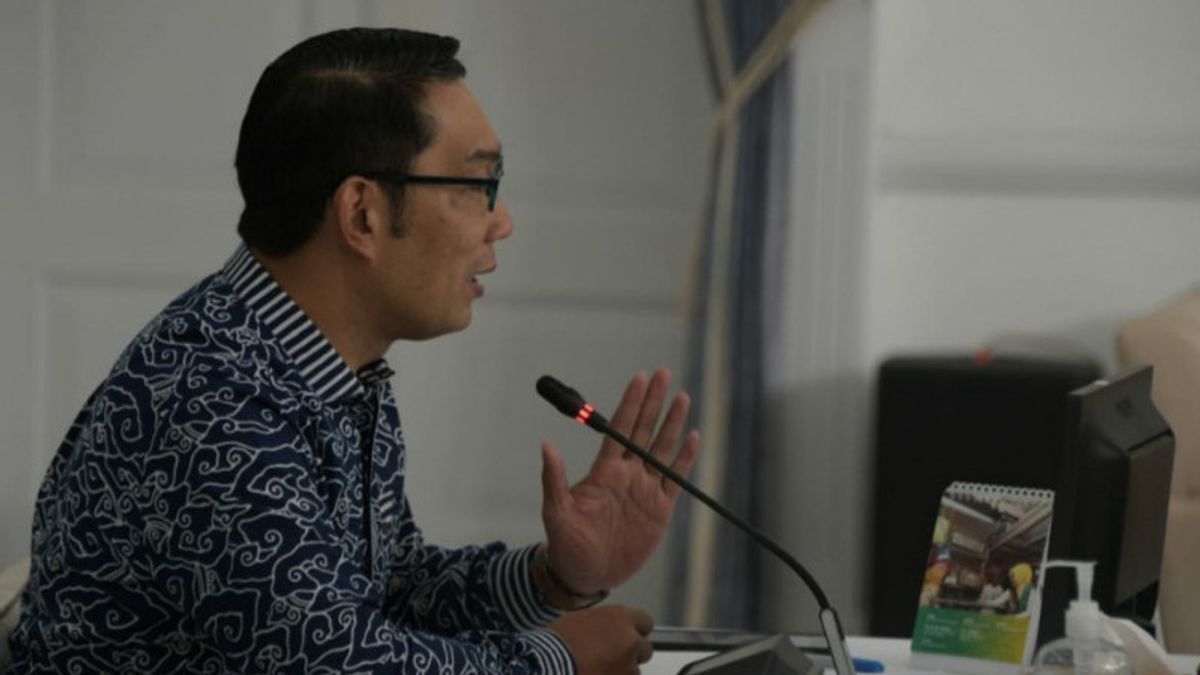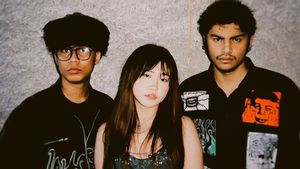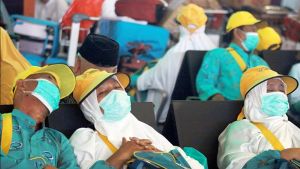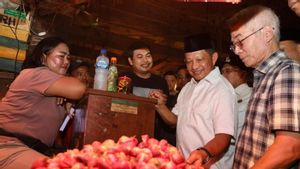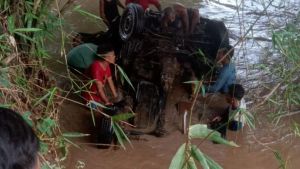JAKARAT - West Java Governor M Ridwan Kamil explained a number of problems with the COVID-19 vaccination in the province, which encountered many challenges.
"We have been given 18.6 million doses (of the COVID-19 vaccine). 14.4 million or 77.4 percent have been injected. The first dose is 25 percent or 9.4 million people. The second dose is 5 million," Ridwan Kamil said in a statement. a 9-minute video received by journalists in Bandung, reported by Antara, Wednesday, September 1.
With the support of mind mapping images that he displayed on a blackboard, Ridwan Kamil said that to create communal immunity or herd immunity, 75 percent of the total 50 million West Java population must be vaccinated.
This means, there are 35 million people in West Java who are the target of the vaccine and to realize that target, West Java only has four months.
This is according to the direction of the Indonesian President Joko Widodo, the COVID-19 vaccination must be completed by the end of 2021.
Kang Emil said that in terms of the speed of COVID-19 vaccination, two months ago, West Java could only inject 50 thousand doses of vaccine per day and increased to 235,000 doses per day at the end of August 2021.
Even in the West Java Vaccination Festival on August 28, 2021, West Java could absorb 420 thousand doses of vaccine per day.
"Alhamdulillah, two months ago we still had 50 thousand doses per day. Yesterday at the end of last August the average was 235 thousand per day. And we tested on August 28 we got 420 thousand," he said.
However, there are many obstacles faced by regions in West Java, namely the distribution of vaccines that has not been proportional to push the vaccination target to be completed by the end of the year.
Kang Emil said that according to West Java's calculations, 15 million doses per month were needed so that 37 million West Java residents could be vaccinated by the end of the year.
"The main problem is that the supply of vaccines to us is disproportionate. There are provinces that have a small population but many vaccines. There are large provinces such as West Java that provide few vaccines. So the percentage is still far, even though the number of vaccines is small," said Kang Emil.
"So if December is going to be done, please supply to West Java no less than 15 million doses per month," he added.
Another problem, continued Kang Emil, is that the West Java territory determines the speed of vaccination and this is proportional to infrastructure support, especially health services.
Currently, West Java only has around 1000 health centers in 27 district cities.
"Territories in West Java are diverse. So it can't be compared with homogeneous ones. West Java has remote cities and remote districts whose reach is difficult in terms of mobility. Infrastructure is also limited and uneven. The number of our health centers is only 1000, even though the WHO standard is 5000, " he said.
Another problem is that West Java as an autonomous region does not have great power in determining vaccine quotas per region and this creates obstacles in the absorption of vaccines in the regions.
"When the supply of vaccines is erratic, the order in which the central government gives quotas to regency cities has been locked. Then the provinces are assigned to send them. So, in my view, the task of this province is not optimal because it is the center that regulates the quota for the regency cities," he said.
In conclusion, continued Kang Emil, the COVID-19 vaccination process in West Java will not be completed by the end of the year if the vaccine supply received is not proportional to the population.
"If the West Java President said that it had to be done in December, it would require approximately 15 million doses per month. So don't talk about the lack or what if the supply is not this much. So the problem is not in the regions but the supply has not arrived. If it is successful, it guarantees 15 million doses per month. For West Java, the target is 500 thousand people are injected per day," he said.
The English, Chinese, Japanese, Arabic, and French versions are automatically generated by the AI. So there may still be inaccuracies in translating, please always see Indonesian as our main language. (system supported by DigitalSiber.id)
